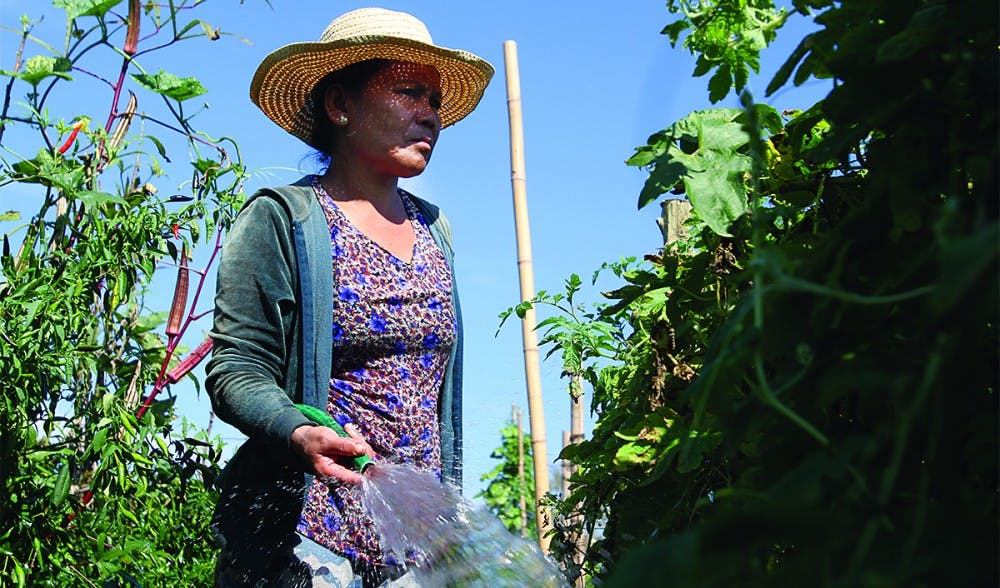Yard-long beans and spicy peppers were among the native Burmese ingredients used in preparing a fundraising dinner last week for Orange County’s large population of refugees from the Asian country.
The dinner, hosted by Transplanting Traditions Community Farm and featuring a variety of authentic Burmese dishes, was organized to raise money for the farm, which provides local refugees with a place to be close to the earth. Transplanting Traditions — where farmers cultivate land subsidized by the organization to help feed their families and earn supplemental income — is one of several organizations in the county that supports people from Burma.
More than 1,000 people from Burma are living in Orange County — many of them refugees from their home nation — said Kelly Owensby, project manager for Transplanting Traditions. Many of those refugees work for UNC.
More than 30 different vegetables native to Burma are grown on the farm, Owensby said.
This month’s dinner at the restaurant Panciuto sourced more than 75 percent of its vegetables from the farm.
Burma, also known as Myanmar, is a country in Southeast Asia that has been involved in civil conflict for years, forcing many of its residents into refugee camps. These refugees were identified as a priority by the U.S. State Department during the Bush administration.
This year will mark the end of their priority status, said Flicka Bateman, director of Carrboro’s Refugee Support Center. She said the reason for ending their priority status is not known, but it is not because the situation in Burma is improving.
“Burma is a country that’s broken into seven main ethnic groups which are all very distinct and speak different languages,” Owensby said.
The conflict in Burma stems from ethnic groups wanting to break away from the country and create independent countries, she said.




